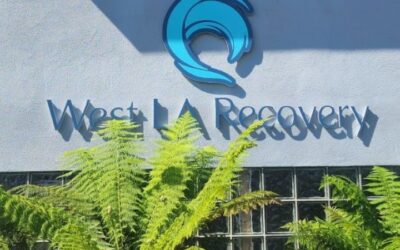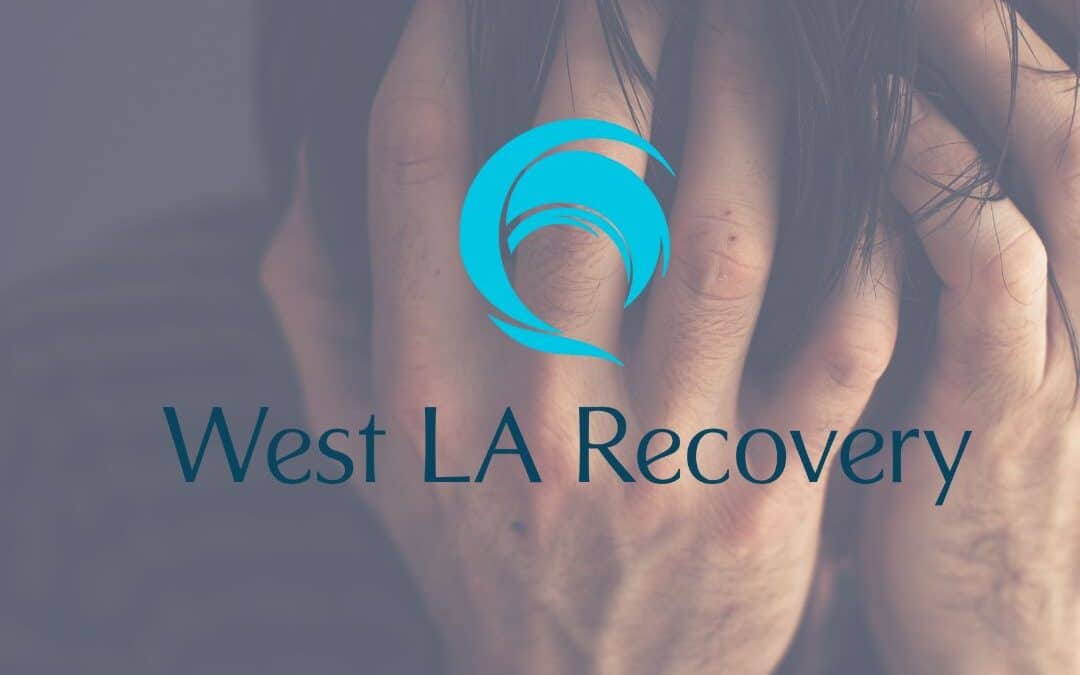Celebrating Women’s History Month
March is Women’s History Month, a time to celebrate and remember the incredible accomplishments of women in American history. This month-long observance shines a light on the many ways women have influenced our society, culture, and world.
The theme for Women’s History Month in 2025 is “Moving Forward Together! Women Educating & Inspiring Generations”. The National Women’s History Alliance (NWHA) chose this theme to recognize women who have dedicated their lives to education, mentorship, and leadership
Women’s History Month serves several important purposes:
- Recognizing achievements and contributions that often go unnoticed
- Encouraging future generations of women and girls
- Challenging gender barriers and stereotypes
- Advocating for gender equality and women’s rights
- Raising awareness about ongoing issues
This celebration began as a week-long event in 1978 and was expanded to a month-long recognition in 1987. It provides an opportunity to reflect on the progress made while also acknowledging the work that still needs to be done for true equality.
Women’s History Month is more than just a time for recognition—it reminds us of women’s resilience, strength, and determination in overcoming challenges. Through this celebration, we honor those who came before us and inspire those who are still breaking new ground today.
Women’s Contributions and Achievements
Women’s influence in recovery extends far beyond personal journeys, with numerous trailblazers breaking barriers and inspiring change. Elizabeth Taylor, known for her legendary acting career, became a powerful advocate for addiction awareness after her own struggles with substance use. Her candid discussions about recovery helped destigmatize addiction treatment for women in the public eye.
Notable Women Breaking Ground in Recovery Advocacy:
- Oprah Winfrey’s platform has amplified countless recovery stories, creating space for honest conversations about addiction
- Drew Barrymore’s journey from child star to recovery advocate demonstrates the possibility of transformation
- Jamie Lee Curtis’s 20+ years of sobriety serves as a beacon of hope for women seeking lasting recovery
The impact of women in recovery reaches across multiple sectors:
Arts & Entertainment
- Creating authentic portrayals of addiction in film and literature
- Using personal platforms to promote recovery resources
Healthcare & Science
- Developing innovative treatment approaches
- Leading research in addiction medicine
Policy & Advocacy
- Shaping legislation for improved access to treatment
- Building support networks for women in recovery
These achievements highlight the critical role women play in advancing understanding, treatment, and support for addiction recovery. Their stories inspire others to seek help and remind us that recovery is possible at any stage of life.
The Intersection of Addiction and Recovery for Women
Women face distinct challenges in their recovery journey that require specialized understanding and support. The path to recovery often intertwines with multiple responsibilities, including:
- Primary caregiving duties for children or elderly family members
- Maintaining household stability
- Managing work-life balance
- Navigating complex family dynamics
These responsibilities can create barriers to seeking treatment, as many women struggle to find childcare options or fear losing custody of their children while in recovery.
Mental Health and Women’s Addiction Patterns
Mental health plays a crucial role in women’s addiction patterns. Research shows women experience higher rates of:
- Depression and anxiety disorders
- Post-traumatic stress disorder (PTSD)
- Eating disorders
- Trauma-related conditions
The Impact of Stigma on Women
The stigma surrounding addiction affects women differently than men. Society often places harsher judgment on women struggling with substance use, leading to increased shame and reluctance to seek help.
Gender-Specific Treatment Approaches
Gender-specific treatment approaches address these unique needs through:
- Trauma-informed care that recognizes the impact of past experiences
- Family-centered programs that maintain connection with children
- Women-only spaces that provide safety and comfort
- Integrated mental health services that treat co-occurring disorders
- Peer support groups that foster understanding and solidarity
Organizations Making a Difference
Organizations like the SHE RECOVERS Foundation are making strides in redefining recovery for women. They focus on reducing stigma and empowering women, providing invaluable resources for those navigating the complex landscape of addiction and recovery. These specialized approaches create environments where women can focus on their recovery while addressing their specific challenges and needs.
Resources Available for Women in Recovery
Women-specific rehabilitation programs provide specialized care that addresses unique recovery needs. These programs incorporate trauma-informed approaches, body image counseling, and family therapy – essential components for lasting recovery.
Key Features of Women’s Rehab Programs:
- Gender-specific group therapy sessions
- Childcare services during treatment
- Holistic healing approaches including yoga and meditation
- Reproductive health services
- Domestic violence support
Sober living environments designed for women create safe spaces for healing and growth. These homes offer structured support while maintaining independence, allowing residents to practice recovery skills in a real-world setting.
Women’s Sober Living Benefits:
- Built-in support network
- 24/7 staff supervision
- Life skills development
- Job search assistance
- Parenting support groups
Organizations like Women for Sobriety and She Recovers Foundation champion women’s recovery needs. Notable advocates such as Beth Kane-Davidson, director of the Addiction Treatment Center at Suburban Hospital, work tirelessly to expand access to gender-specific treatment options.
Recovery centers across the country now offer specialized programs addressing women’s unique challenges. These facilities provide comprehensive care plans that include:
- Mental health treatment
- Eating disorder support
- Trauma therapy
- Relationship counseling
- Financial planning assistance
Such initiatives are crucial in promoting inclusivity in the recovery world and embracing women’s journeys to sobriety.
Celebrity Influence on Addiction Awareness among Women
Sober female celebrities have become powerful voices in breaking down stigmas surrounding addiction and recovery. Their authentic stories create relatable narratives that resonate with women across different backgrounds.
Demi Lovato: Starting Conversations about Addiction
Demi Lovato has openly shared her journey through addiction, mental health challenges, and recovery. Her documentary “Dancing with the Devil” sparked crucial conversations about:
- The complexities of substance use disorders
- The importance of seeking professional help
- The reality of relapse as part of many recovery journeys
Jada Pinkett Smith: Addressing Alcohol Dependency and Cultural Barriers
Jada Pinkett Smith uses her platform “Red Table Talk” to discuss her alcohol dependency and recovery path. Her candid discussions highlight:
- Generational patterns of addiction
- The role of family support in recovery
- Breaking cultural barriers around seeking help
Jamie Lee Curtis: Advocating for Personalized Treatment Approaches
Celebrity recovery stories also shine light on different paths to sobriety. Jamie Lee Curtis celebrates her long-term recovery while advocating for:
- Personalized treatment approaches
- The importance of community support
- Ongoing mental health care in recovery
These public figures demonstrate that addiction doesn’t discriminate based on success, wealth, or status. Their visibility helps create a safer space for women to:
- Acknowledge their struggles without shame
- Seek treatment without fear of judgment
- Connect with others in similar situations
Through their platforms, these women transform personal struggles into powerful messages of hope and healing for others facing similar challenges.
Advocacy for Marginalized Groups within Recovery Settings
Women of color and transgender women face unique barriers in addiction recovery settings. These challenges include:
- Limited access to culturally competent care
- Higher rates of discrimination in healthcare settings
- Financial barriers to treatment
- Language accessibility issues
- Lack of representation in treatment programs
Research shows that BIPOC women are 50% less likely to complete treatment programs compared to their white counterparts. Transgender women report experiencing discrimination in nearly 30% of healthcare interactions, leading many to avoid seeking necessary treatment.
Inclusive support systems play a vital role in addressing these disparities. Successful programs incorporate:
- Cultural sensitivity training for staff
- Multilingual services and resources
- LGBTQ+ affirming practices
- Sliding scale payment options
- Diverse representation in leadership positions
Advocacy groups like the National Black Women’s Justice Institute and Trans Lifeline work tirelessly to promote equitable access to treatment. These organizations push for policy changes, provide direct support services, and create safe spaces for marginalized communities in recovery.
Recent initiatives by these groups have led to the development of specialized programs that address intersectional needs, including trauma-informed care approaches and family support services tailored to diverse cultural backgrounds.
Changing the Language Around Substance Use Disorders to Support Women’s Recovery Journeys
Words shape perceptions, influence behaviors, and impact recovery outcomes. Person-first language recognizes the humanity of individuals experiencing substance use disorders, placing their identity before their condition.
Key Language Shifts That Make a Difference:
- Replace “addict” with “person with substance use disorder”
- Use “person in recovery” instead of “recovering addict”
- Say “person experiencing addiction” rather than “substance abuser”
Harm reduction strategies complement this respectful approach by meeting women where they are in their recovery journey. These evidence-based practices include:
- Safe consumption sites
- Needle exchange programs
- Naloxone distribution
- Education on safer use practices
The language we choose creates ripple effects throughout communities. When healthcare providers, family members, and support systems adopt person-first language, they help build:
- Trust between patients and providers
- Stronger therapeutic relationships
- Reduced stigma in medical settings
- Enhanced self-worth among women seeking treatment
Community acceptance grows through education and understanding. Support groups, healthcare facilities, and treatment centers that implement person-first language policies create environments where women feel valued, respected, and empowered to pursue their recovery goals.
By shifting our language, we acknowledge that substance use disorders don’t define a person’s worth or potential. This recognition opens doors to more effective treatment approaches, such as those highlighted in this study, and sustainable recovery outcomes.
Events Celebrating Women During Women’s History Month
Women’s History Month brings an array of empowering events across the country that spotlight women’s achievements and challenges in recovery. These gatherings create spaces for connection, learning, and celebration.
Popular Women’s History Month Events:
- Recovery Speaker Series – Inspiring women share their journeys to sobriety, offering hope and practical insights
- Wellness Workshops – Sessions focused on mental health, nutrition, and holistic healing approaches
- Leadership Panels – Successful women in recovery discuss breaking barriers and building meaningful careers
- Art Exhibitions – Creative works by women in recovery, expressing their experiences through various mediums
- Support Group Meetups – Special gatherings celebrating milestones and strengthening community bonds
Awareness-Raising Activities:
- Educational seminars addressing women-specific recovery challenges
- Documentary screenings highlighting women’s recovery stories
- Resource fairs connecting women with treatment options
- Advocacy workshops teaching effective community engagement
These events shine light on critical issues women face during recovery:
- Limited access to gender-specific treatment
- Childcare barriers during rehabilitation
- Financial constraints affecting treatment choices
- Social stigma surrounding women’s substance use
You’ll find these enriching events at recovery centers, community organizations, and healthcare facilities. Many offer virtual attendance options, making participation accessible to women nationwide.
Local women’s groups often host intimate gatherings where you can connect with others in recovery, share experiences, and build lasting support networks. These spaces provide safe environments for honest discussions about recovery challenges and victories.
One notable organization making strides in this area is Women for Sobriety, which provides invaluable resources and support for women seeking sobriety.
Join Us at West LA Recovery to Support Women on Their Journey to Sobriety
Your path to recovery deserves specialized care and understanding. At West LA Recovery, we offer comprehensive treatment programs designed specifically for women’s unique needs and experiences.
Our dedicated team provides:
- Gender-specific therapy sessions addressing trauma, relationships, and self-empowerment
- Flexible scheduling options to accommodate work and family responsibilities
- Holistic healing approaches including meditation, art therapy, and wellness workshops
- Supportive community networks connecting you with other women in recovery
This Women’s History Month, we invite you to take the first step toward lasting recovery. Whether you’re seeking information for yourself or supporting a loved one, our doors are open to answer your questions and guide you through the recovery journey.
Ready to start your transformation? Our admissions team is available 24/7 to:
- Walk you through our treatment options which you can explore here
- Verify your insurance coverage
- Schedule a confidential consultation
- Answer any questions about our programs
You’re not alone in this journey. Call us today at [phone number] or visit our facility by checking our contact page to learn how we can support your recovery goals. Your story of strength and resilience deserves to be celebrated – let us help you write your next chapter.







